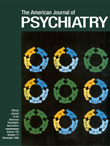Delirium Following Cessation of Alcohol Consumption
To the Editor: David Hersh, M.D., and his colleagues presented an excellent review of persistent delirium following the cessation of heavy alcohol consumption (1). There are a few areas, however, that deserve further clarification.
| 1. | The authors make a determined effort to note that the patient presented in their case report demonstrated persistent “delirium” and not “delirium tremens,” the latter requiring the presence of tremors and autonomic hyperactivity. Elsewhere in their review, however, this distinction becomes murky. The authors state that “although delirium tremens typically remits over a period of several days, cases persisting for weeks have been reported” (p. 846). In fact, the reference they cited concerns “alcohol withdrawal delirium” (2), not delirium tremens. It appears that it is only the delirium, not the autonomic hyperactivity and tremors, that may be protracted following heavy alcohol consumption. | ||||
| 2. | Citing Nordstrom and Berglund (3) and Koch-Weser et al. (4), the authors report that “approximately 5% of patients hospitalized for alcohol withdrawal go on to develop delirium tremens” (p. 846). There is no recent empirical evidence to support this observation. The study by Nordstrom and Berglund (3) used data obtained from 1949 to 1969 and defined delirium tremens as “an alcohol withdrawal syndrome with hallucinosis and a clouded sensorium.” This definition is not consistent with modern terminology for delirium tremens. The Koch-Weser et al. report (4) obtained the 5% figure from a 1966 article by Victor (5), which, in turn, had obtained the number from a 1953 article (6). The latter article reported that 5% of 266 consecutive patients admitted with obvious alcoholic complications experienced “typical delirium tremens.” In my experience, delirium tremens is observed only in patients who are not aggressively and appropriately treated for the preceding alcohol withdrawal syndrome. | ||||
| 3. | The authors state that the ideal benzodiazepine for treating alcohol withdrawal has an intermediate half-life. This claim is not referenced. Sellers et al. (7) have described a symptom-triggered protocol for the treatment of alcohol withdrawal with the long-acting benzodiazepine, diazepam. The advantages of using this paradigm include being able to initially “load” patients in severe withdrawal, reducing the need for later dosing, and permitting a withdrawal relatively free of cyclical variations, from drug-induced “highs” to the reemergence of withdrawal symptoms (8). Saitz et al. (9) have elegantly demonstrated that this dosing paradigm, which uses a long-acting benzodiazepine, dramatically shortens both the total dosing period and the total dose of benzodiazepine required for treatment. | ||||
1. Hersh D, Kranzler HR, Meyer RE: Persistent delirium following cessation of heavy alcohol consumption: diagnostic and treatment implications. Am J Psychiatry 1997; 154:846–851Link, Google Scholar
2. Miller FT: Protracted alcohol withdrawal delirium. J Subst Abuse Treat 1994; 11:127–130Crossref, Medline, Google Scholar
3. Nordstrom B, Berglund M: Delirium tremens: a prospective long-term follow up study. J Stud Alcohol 1988; 49:178–185Crossref, Medline, Google Scholar
4. Koch-Weser J, Sellers EM, Kalant H: Alcohol intoxication and withdrawal. N Engl J Med 1976: 294:757–762Google Scholar
5. Victor M: Treatment of alcoholic intoxication and the withdrawal syndrome: a critical analysis of the use of drugs and other forms of therapy. Psychosom Med 1966; 28:636–650Crossref, Google Scholar
6. Victor M, Adams RD: The effect of alcohol on the nervous system, in Metabolic and Toxic Diseases of the Nervous System. Baltimore, Williams & Willkins, 1953, pp 526–573Google Scholar
7. Sellers EM, Naranjo CA, Harrison M, Devenyl P, Roach C, Sykora K: Oral diazepam loading: simplified treatment of alcohol withdrawal. Clin Pharmacol Ther 1983; 34:822–826Crossref, Medline, Google Scholar
8. Adinoff B, Bone GHA, Linnoila M: Acute ethanol poisoning and the ethanol withdrawal syndrome. Med Toxicology 1988; 3:172–196Crossref, Google Scholar
9. Saitz R, Mayo-Smith MR, Roberts MS, Redmond HA, Bernard DR, Calkins DR: Individualized treatment for alcohol withdrawal. JAMA 1994; 272:519–523Crossref, Medline, Google Scholar



